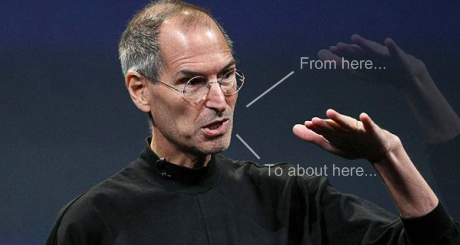Unlimited mobile data: Bad idea, but good while it lasted

I think we can safely say that, though the iPhone 4 has brought the media much joy in the past month with the 'Antennagate' reaching its peak on Friday, the iPhone has killed unlimited mobile data access.
O2 UK, my mobile network - and broadband provider also - started the Mexican wave of capping mobile data usage to 500MB, 750MB or 1GB per month, depending how much you pay for your contract. AT&T called it a day on its own unlimited tariffs, and Verizon appears to be following suit also.
A Mexican wave, you say? Yes, because unlimited mobile data will be back. It'll just take a while.

The "exponential demand" for data on smartphones was kickstarted by the initial release of the iPhone. Since then, over three years ago, mobile devices have been increasingly getting better, faster, capable of much more - but the demand for social networking and sharing photos especially has increased too.
So don't for a minute think I'm blaming the iPhone: I'm not. I'm not even blaming the devices manufacturers, or the end-user. In fact, I don't really blame anybody, but if I had to personally point a finger - it would be at the mobile operators themselves.
They should never have allowed unlimited mobile data access until they were in a position where they could offer it. We're talking a full roll-out of 3G, supported and bolstered infrastructures and the stability to provide a surge of data on-demand when it's needed, particularly during events like the New Year.
The networks can't cope with the data traffic, thus it needs to cut people down by incurring extra charges: charges of which will hit the younger person most.
I noticed in New York the high speeds of data I could access on my BlackBerry, yet the calling quality (mostly through AT&T) was atrocious. Dropped calls and crackling on the line: I finally realised first-hand what my colleagues have been going on for all this time.
I return to the UK and a little difference, but not by much. During the subsequent few weeks, I realised how poor my cell reception was and the quality of the line had significantly decreased. A few days later, I suffered my first dropped call on this network which I have been with for eight years.
I knew at this point how dire the mobile network operators were in.
The mobile operators allowed unlimited mobile data plans because they thought they could, by offering incentives to prospective customers. Now, it's the reverse in that existing O2 customers can hold on to the unlimited data usage whereas new subscribers cannot.
The mobile network operators now need to work on one simple thing. Beef up your infrastructure and get it up to a capability where users can swamp the system with data happily and freely, and allow unlimited data access back.
Unlimited mobile data: Was it a bad idea from the start? Or should it have been held back until the infrastructure could cope with it? Your comments are most welcome.